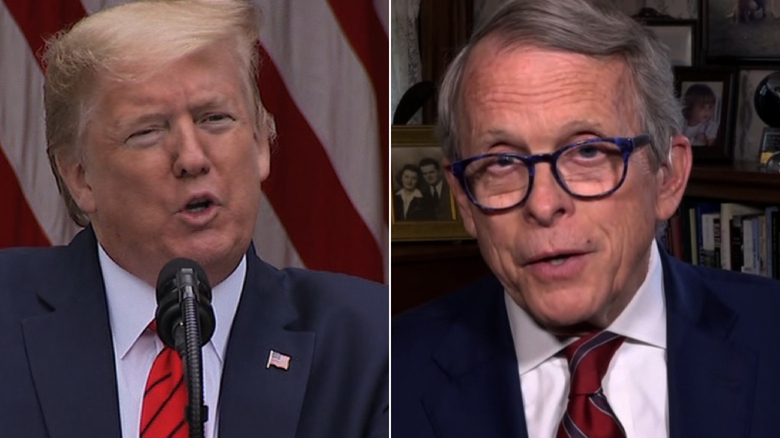Washington (CNN)On Monday, President Donald Trump made the same claim about coronavirus testing that he did in early March.
"If somebody wants to be tested right now," Trump said at a Monday news conference, "they'll be able to be tested."
Two months later, it's still not true.
Some states now say they are offering tests to everyone. But multiple states still say tests should go to people who meet certain criteria -- such as having symptoms of the virus, having had contact with an infected person or working in a health care facility or in a grocery store.
In addition to official guidelines on who should get a test, some jurisdictions continue to experience shortages of key testing materials -- which may prevent even people with symptoms from being tested.
Trump was implicitly corrected Monday by assistant secretary for health Brett Giroir, the administration's testing coordinator, who said that "everybody who needs a test" -- not, as Trump said, "wants" a test -- "can get a test." Giroir explained that he was talking about people "who are symptomatic with a respiratory illness" or who "need to be contact traced," meaning they have been in contact with someone who has tested positive.
But Trump returned to his original language, saying, "If people want to get tested, they get tested." He continued: "But for the most part, they shouldn't want to get tested. There's no reason."
Public health experts say you don't necessarily need to test every American every day. But they also say the US is still not conducting enough tests to stop the spread of the virus and safely reopen the economy.
A Harvard Global Health Institute team said last week, for example, that the US should be testing at least 900,000 people a day by May 15. Trump announced Monday that the current number is about 300,000 tests per day.
Some Americans who do not have symptoms may want to be tested -- and know that people who live and work in their vicinity have been tested -- so they can be more confident returning to workplaces and engaging in social activities.
Asymptomatic people are being tested before they have contact with the President himself. Trump did not respond directly on Monday when asked to address perceptions of a double standard on testing.
Continued shortages and inequities
While some of the testing shortages of March and April have been alleviated, some of them remain.
After the Monday news conference ended, CNN anchor Wolf Blitzer asked Republican Ohio Gov. Mike DeWine if anyone who wants a test in the state can get one. He responded, "No," though he emphasized that the state has "made a lot of progress" with the help of the White House.
"As I've said, it's gone up significantly. But what we're trying to do with that is to prioritize it to save lives, and that's the most important thing that we focus on every single day," DeWine said.
Kaiser Health News reported last week that the availability of testing in California varied widely from county to county; while some counties said they could test even asymptomatic residents, one county "has had so few testing supplies that officials have resorted to buying swabs on Amazon and pilfering chlamydia testing kits for swabs and the liquid used to transport specimens to labs."
In Illinois, Karen Kaul, chair of the Department of Pathology and Laboratory Medicine at the NorthShore University HealthSystem, told ABC 7 Chicago in a story published Friday that "we're still having difficulty getting [testing] supplies and that's been a challenge for us ever since this started."



















